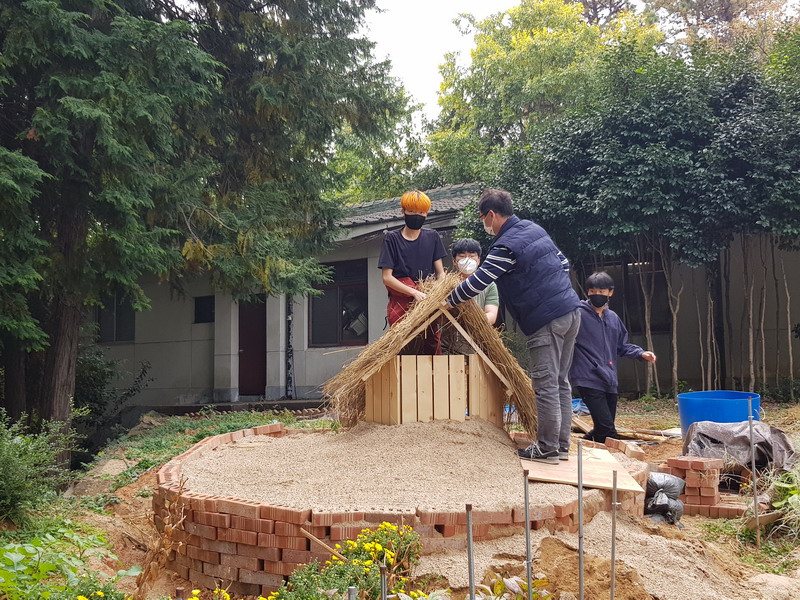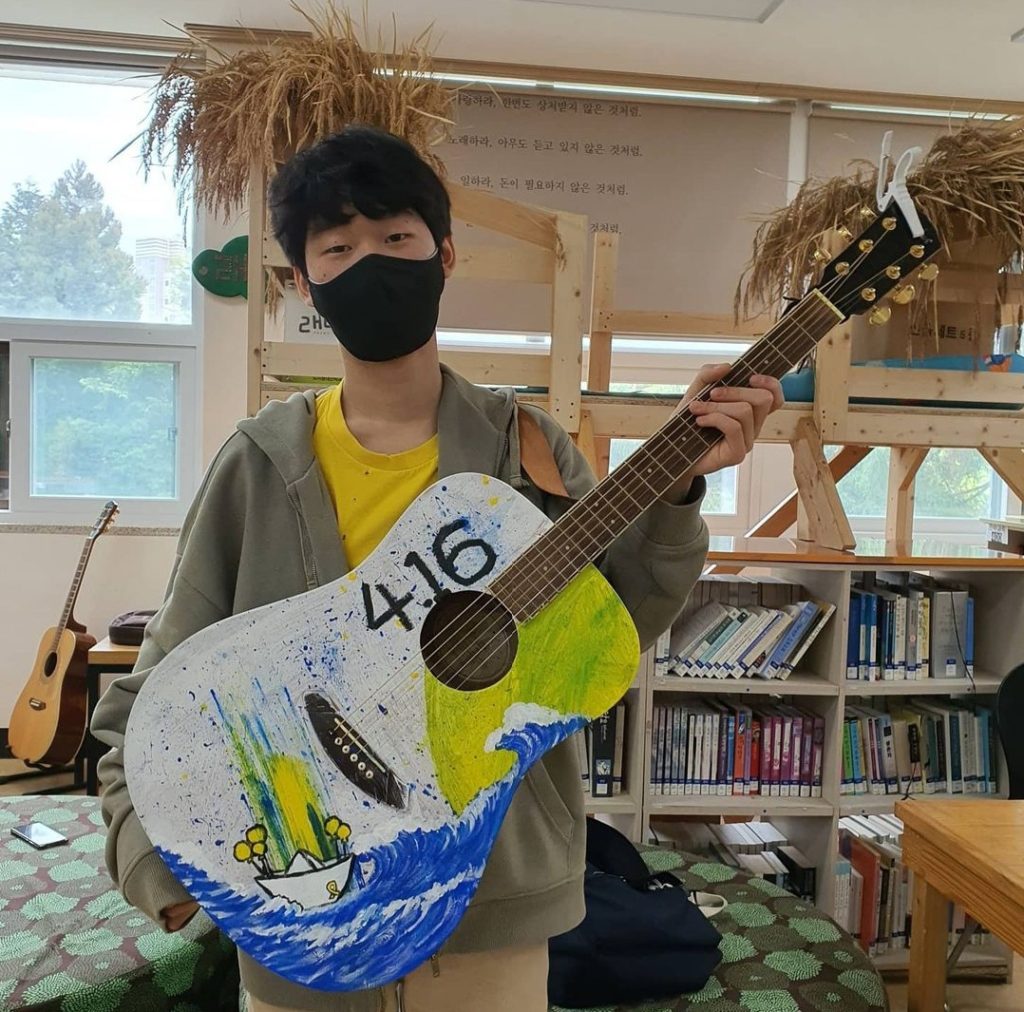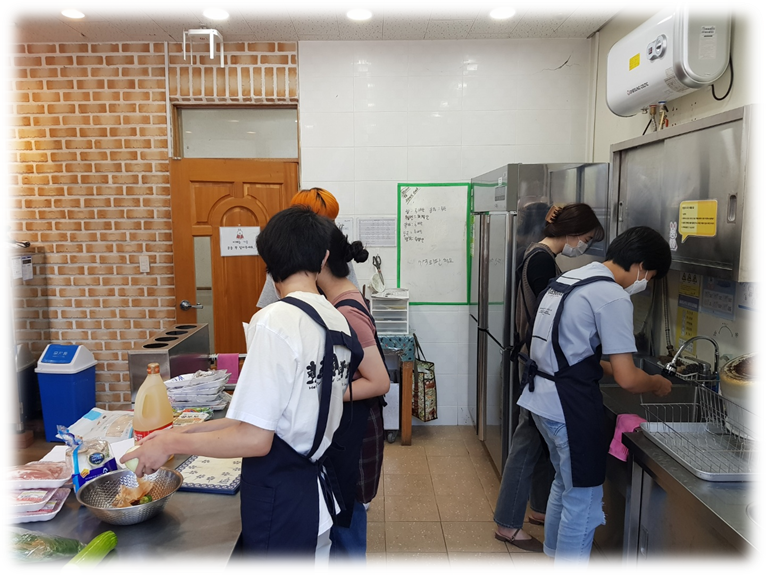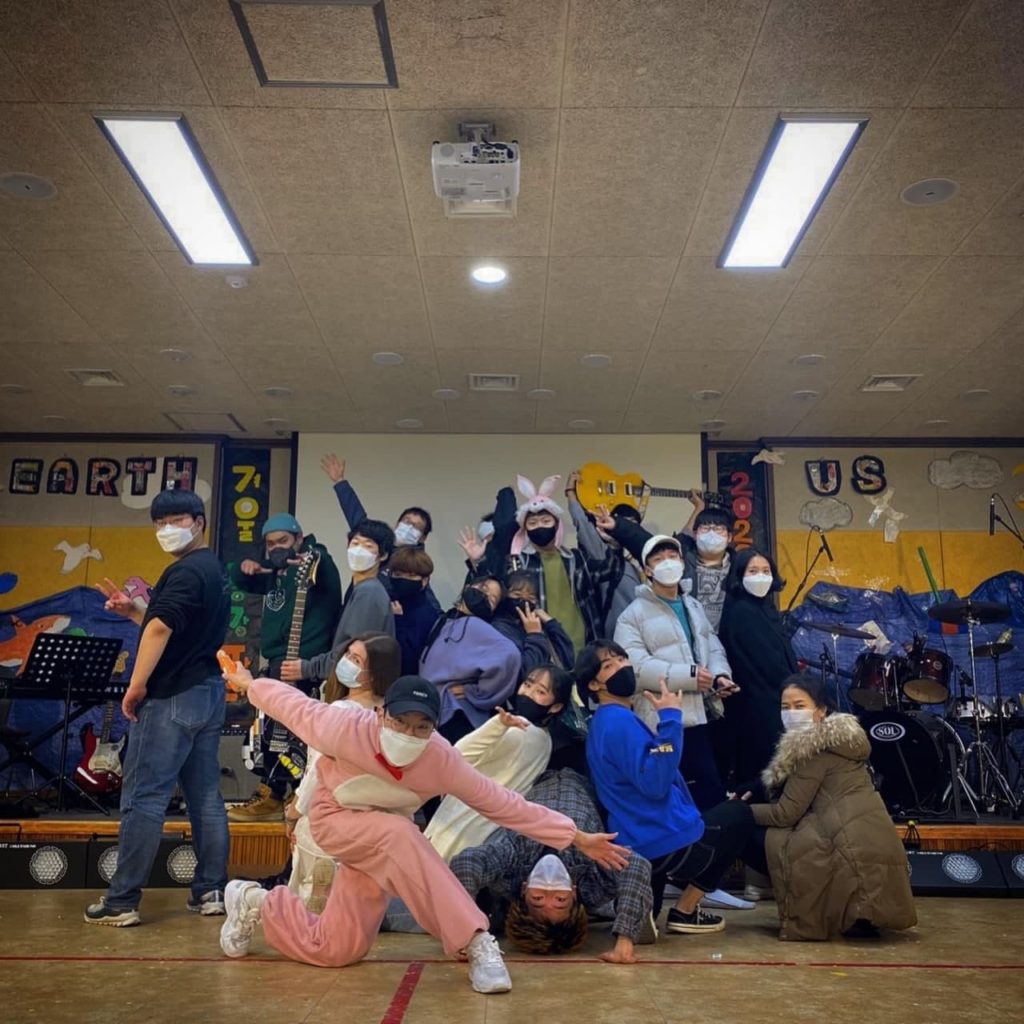The Raemi School: Looking at the Future from a Different Perspective – The Other Way Around!
By Jana Milosavljevic.
In South Korea, a country that is praised by many for its good quality education, surprisingly little is known about alternative schools that prepare students for different (alternative) life paths and offer them divergent educational backgrounds.
One such school, the Raemi School, is located in Gwangju’s Hwajeong-dong at the Hwajeong Youth Culture Center. The name of the school was coined by the first cohort of students themselves when the school was established in 2012. Raemi (래미) is the reversal of the syllables of the Korean word mirae (미래), which means “future.” By giving this name to their school, these students wanted to clarify that they looked at their futures “the other way around” and from a different perspective than their peers.

The Raemi School is a place where the focus of learning is finding and becoming “oneself.” In this school, the students embark on a journey to find joy in the process of learning itself. They can freely discover and choose what kind of skills they feel that they need to learn. Therefore, the keywords that the Raemi School emphasizes in the learning process are “self-reliance” and “independence.” The students learn not only how to find and recognize themselves, but also how to gain confidence to rely on their strengths and their own skills in creating the life that they want.
Nevertheless, learning how to co-exist with others and developing “community spirit” bear the same importance as the abovementioned foci. While reflecting on their own existence and its place in the world, by growing up in the Raemi School’s community, the students naturally learn how to empathize with others’ feelings, express their opinions in a healthy way, discuss, and create a safe learning environment.

The classes and activities at the Raemi School can be summed up with the following categories: art, humanities, traveling, life skills, and local community. When it comes to actual classes, students themselves propose the things they would like to learn more about. They discuss the suggestions among themselves, and once an agreement is made, the school then invites a teacher to conduct the chosen classes. For example, in case there are five students who are interested in studying Japanese, and one student in studying French, the class that starts off the semester would be the Japanese class, and the one student interested in studying French would have to wait until some more students would like to join in learning that subject in the future.
As the example illustrates, students discuss all of the important matters connected to their school life and rules with each other and with the teachers, gaining experience and learning the meaning of “community” and “society.” The students also cook their own lunch with the teachers, wash the dishes and clean up after themselves, clean and repair what needs to be repaired around the school on their own, and tend to the garden and surrounding environment of the school, keeping it a clean and pleasant place to be. In this process, they get to learn how to work with agriculture, like how to plant and harvest rice. They also take part in local community events and interactions, such as April 16 Sewol Ferry memorial events, May 18 Democratic Uprising-related learning activities, and athletic competitions.

However, probably one of the greatest and most demanding projects of the Raemi School and its students is the World Trip Project, which is unfortunately on hold at the moment due to the COVID-19 pandemic. This project allows students to prepare their own 100-day trip around the world, starting from choosing the destinations and learning about them, to organizing and planning the excursion and collecting the funds in the first semester – and then actually going on the trip the following semester. This sort of travel that one embarks on in one’s teenage years helps students broaden their horizons, explore the wide world, and create significant relationships and experiences when meeting new people far from the safety of their own home.
Furthermore, every student at the Raemi School sets their own study goal, like what they want to achieve personally during the education process, and the two head teachers are there to understand these goals, advise the student on their learning path, and navigate them towards achieving their ultimate purpose. Finally, the Raemi School does not have final exams as a method of evaluation. Rather, the students present what they have learned, made, or achieved at a Completion Ceremony at the end of every semester, twice a year.

Even though the Raemi School does not provide specific university entrance exam education, students still do learn the compulsory subjects such as math, history, English, etc. Most of the classes, however, are related to culture, art, travel, and the environment. Of course, it is possible to get back to conventional education and enter regular high school or enter university after graduating from the Raemi School. Students who wish to do so have to take special qualification exams. Still, such students are few. Most of them continue their path at another alternative school or tertiary institution, or they become independent and find or create their own jobs upon graduating from the Raemi School.
The Raemi School is an integrated middle and high school, so anyone between the ages of 14 and 19 (Korean age) can apply for entry. After receiving the application documents, admission is decided through individual interviews. If you are curious to learn more about the Raemi School, you can visit the Raemi School Café on Naver (in Korean) or follow the Raemi School student activities on Facebook, YouTube, and Instagram. You can also get further information on the Gwangju Hwajeong Youth Culture Center website (www.gjyc.or.kr).
Lastly, some of the current Raemi School students, as well as a couple of graduates, and one of their head teachers, Lim Min-jeong, were happy to share their thoughts and experiences about the school in a short interview.

Gwangju News (GN): To begin with, please choose one word to describe yourself, one word to describe the Raemi School, and then let us know how those two words connect.
— So-hee: I can describe the Raemi School with the word “free” and myself as a “bird.” I can fly, but I need a lot of practice, and the Raemi School teaches me about freedom. There are so many difficulties when you want freedom, but Raemi helps you find your way to freedom. I do not know if I will be able to fly after I graduate, but this school allowed me to grow, and I am satisfied with it.
— Min-jeong: It is not easy to choose a word to describe myself, but what first comes to mind is something an old friend said about me in the past – she said I am like a “weed.” [Laughs.] I believe she said it because I can survive and live well anywhere, no matter the circumstances. The word describing Raemi then would have to be a “garden patch.” As I said, weeds can put down roots and grow anywhere, still, Raemi’s land is not an already cultivated rice paddy or field, but a fertile ground of endless possibilities to plant and grow whatever we want. So, I believe that a “weed” such as myself can fit into and grow well in Raemi’s “garden” as well.
GN: Why did you choose the Raemi School?
— Min-ha: I felt like my many talents would go to waste if I went to a regular school. [Laughs.] I wanted to develop various talents and skills, so I came to the Raemi School. I just never saw myself as part of the current “education triangle” – “home-school-academy” – that most Korean students are going through.
— Min-jeong: I started working as a Raemi School teacher in August 2012. Therefore, based on my nine years of experience, I can say that the usual reason why students and their parents choose the Raemi School is because they do not trust conventional education. They wish to get out of the pre-determined routine and the designated school curriculum. Rather, the students hope to spend their teen years channeling their youthful energy in a different way than is provided by the regular national curriculum and learning different things and life skills. There are also students who tried going to regular schools, but they felt like they could not fit in very well, or that it did not fit their future life goals, so they looked at alternative schools and came to the Raemi School.

GN: What is the best aspect of the Raemi School?
— Min-yeong: I chose the Raemi School because I wanted to be able to choose the things that I wanted to learn. So, I believe the best aspect of Raemi is that it provides students with the opportunity to learn the things they would not be able to learn at a regular school. I feel that during my years at the Raemi School, my vision of the world has broadened and I have gained lots of invaluable experience.
— Min-ho: I came to the Raemi School right after elementary school because I was curious to learn more things about real life that I thought I could not learn in a regular school. I feel the greatest thing I learned at Raemi really is work. Whatever work it may be, I think that Raemi School’s best aspect is truly developing students’ skills in many different fields of work.
GN: What would you like to change about the Raemi School?
— Ye-woon: I went to an alternative elementary school and another alternative middle school before I came to Raemi. I feel that the Raemi School could still develop way more as an alternative school and gain its independence. It seems to me that the Raemi School is still too connected to the office of education, which is a pity, and should spread its network more.

GN: What are your plans for after graduation? Or if you have already graduated, what are you doing now?
— Ji-min: I am learning how to play the electric guitar at the Raemi School. It is very fun, and I think I am very good at it. So, I want to keep doing my best, practice a lot, and continue my life as a musician after I graduate.
— So-hee: At the Raemi School, I study humanities with Teacher Min-jeong, and I like it a lot. So, I want to study humanities more. I think that college is a good place for me. Therefore, after graduating I will study for Korea’s college entrance exam. Maybe it will be hard, but I will work hard for my future in humanities!
— Sang-yoon: I entered the Raemi School right after elementary school, and since I am 19 now, I graduated last semester. As you might have noticed, in Korea there is not a lot of awareness about cyclists being part of the traffic, and it can be dangerous to go on the streets. So currently, I am visiting elementary schools and educating kids about safety in traffic when riding a bike. We get on a bike together and learn about it through practice.
— Soo-woon: I am 21 and I graduated from the Raemi School two years ago. At the moment, I am a PD for a community radio station. We broadcast community news, of course, but I am also focusing on collaborating with and creating contents for young adults who are similar to my age.
GN: What would you like to say to invite new students to the Raemi School?
— Yeon-woo: At the Raemi School, you can learn so many things, and more than anything, you can learn the things that you want to learn. Also, if you feel like you do not really fit into the conventional education system, try and join us!
— Yoo-woon: I always like to say that Raemi’s greatest weakness is that it does not have any weaknesses. [Laughs.] So, to everyone wanting to come to the Reami School, I would just like to say that I hope you will come and learn a lot at a school with no flaws!
Photographs courtesy of the Raemi School.
The Author/Interviewer
Jana Milosavljevic was born and raised in Serbia. She currently lives in Gwangju, and she loves exploring and learning about new cultures and meeting new people. In order to be able to communicate with as many people as possible, apart from Serbian, she has learned English, Japanese, Korean, and German. Instagram @janemiya




